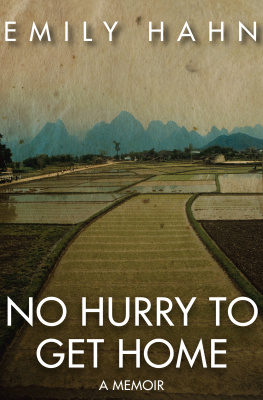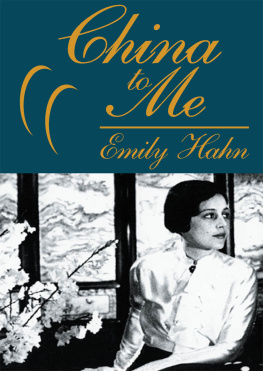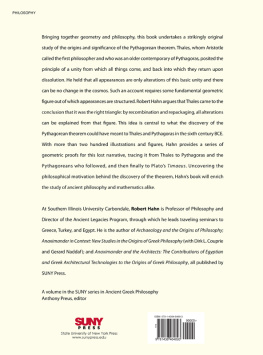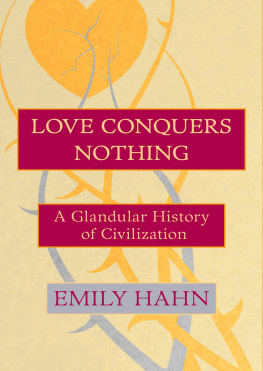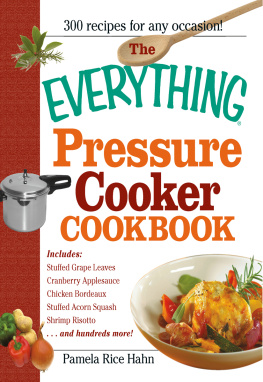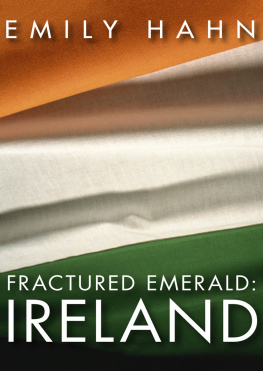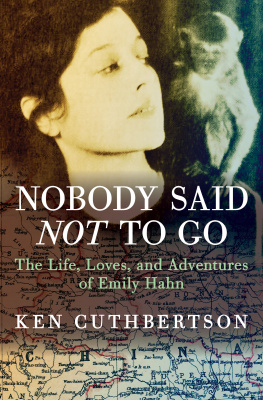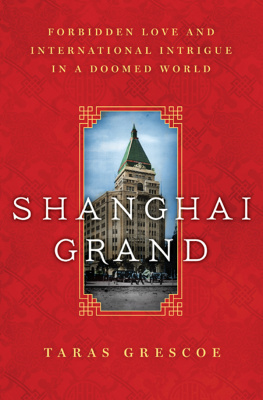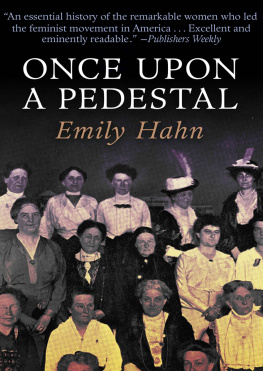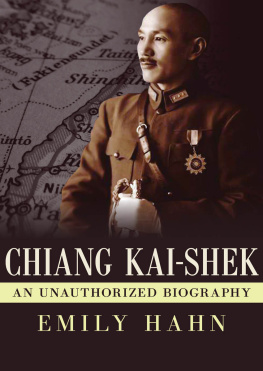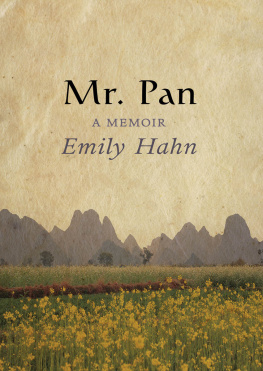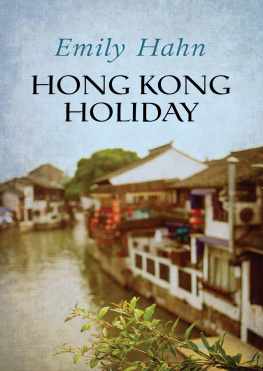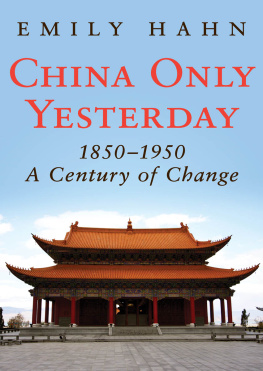EMILY HAHN
FROM OPEN ROAD MEDIA
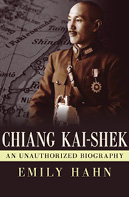
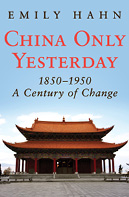
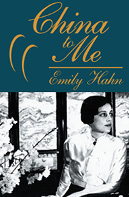

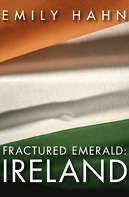
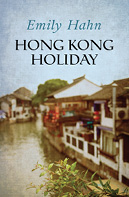
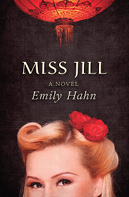
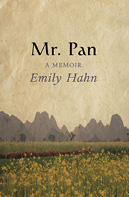
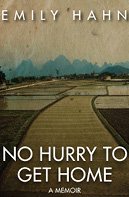
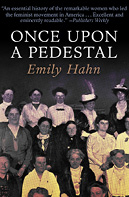
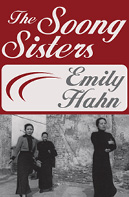


Find a full list of our authors and
titles at www.openroadmedia.com
FOLLOW US
@OpenRoadMedia




No Hurry to Get Home
Emily Hahn

TO CHARLES
It is a comfort to re-read these lovely, lively stories. Our mother, Emily Hahn, died in 1997, and life is not the same without her. However, to accompany her again on her adventures is to rejoice in life itself.
My family and I are happy that new readers will discover Emily and her giftsamong these, humor, tolerance, compassion and a determination that women find equality with men.
Finally, to add to the words of one of her dear friends, "What a woman," I say, "and what a writer."
My special thanks to Laura Tucker who has brought about the reprinting of these stories.
Carola Vecchio
New York City
February 2000
FOREWORD
This wonderful book, No Hurry to Get Home, was originally published as Times and Places, a deceptively simple title for a book so packed with excitement and intrigue and adventure. Yet its very simplicity was typical of its author, Emily Hahn. She lived an extraordinary life that she wrote about in stories for The New Yorker and in the more than fifty books that she produced during her long career, and never projected a sense of overdone brio or embellishment. She just told the story simply, intelligently, delightfully, sometimes slyly and she drew us in and drew us on, generations of us, as though she were suggesting a quiet walk on a summer evening. But one could never be certain where that quiet walk might lead.
Emily, nicknamed Mickey by her mother and called that by friends and family throughout her life, produced in No Hurry to Get Home a memoir that seemed to contain more lives than any one person could have experienced. The individual chapters, all of which were originally written as pieces for The New Yorker, can stand alone as essays or be read novel-like, fascinating us as we follow her from her early days in St. Louis and Chicago, to New Yorkand then off and away through the wide, wide world.
One of the astonishing things about Mickey was that she was always a part of, sometimes even ahead of, her own time and place. Her first New Yorker piece appeared in the late twenties, when she was twenty-four, and her final contribution was published in 1996 when she was ninety-one, her amazing career at the magazine having spanned eight decades. She almost made it through a century, and yet she was always in the present, in the immediate. Her work stands up to time and has a strong, steady undercurrent of truth and reality like a secret subterranean stream. She maintained that she was not a feminist, but I believe that was because she disliked being labeled or pigeonholed. She steadfastly refused throughout her life to conform to anyone else's idea of how women, not just this particular woman, should be, or do, or become. There was an inborn and unyielding independence in her that must often have been difficult to maintain. She lived her life as she chose to and found certain conventions mere unreasonable nuisances and nothing to do with her. Yet there was no sign of flamboyance in her looks, nor in her demeanor, nor in her character. What she did, she did for herself, never for the impression it might make on the rest of the world. She made the unconventional seem ordinary by her very attitude toward it, and therefore made it more acceptable to those of us less brave or less honest.
The wide range of Mickey's curiosity and her refusal to accept boundaries in her work were reflected in the breadth and scope of her interests and accomplishments. She would not be put in a literary category. She wrote fiction, personal essays, reportage, poetry, history and biography, natural history and zoology, cookbooks and children's books. To say that her interests were eclectic would be a form of meiosis. She was fascinated by certain aspects of the everyday as well as by the exotic; even in old age her curiosity and the need to satisfy it never flagged.
I met Mickey my first day at The New Yorker. Returning from lunch, I stepped off the elevator and was instantly confused and lost in the rabbit warren that was the twentieth floor. I saw a very attractive woman emerging from an office that faced the elevators, so I approached hershe looked approachable, though I hadn't any idea who she wasand said, "I just started today and I'm lost. I can't find my office." She reopened her office door and invited me in. "I'm Mickey Hahn," she said, holding out her hand and smiling, "Who are you?" Half an hour later, after a good quizzing, before she led me back down the hall to my own cubbyhole, she knocked on a few doors and introduced me to Philip Hamburger, Joseph Mitchell, Brendan Gill and Lillian Ross. I realized later, when I was wiser to the ways of The New Yorker, that I might have been there for months without catching sight of any of them, let alone being introduced to them on my very first day. I thought then, as I think now, that her instinctive kindness to an apprehensive and nervous new girl made her my friend for life.
Next page
